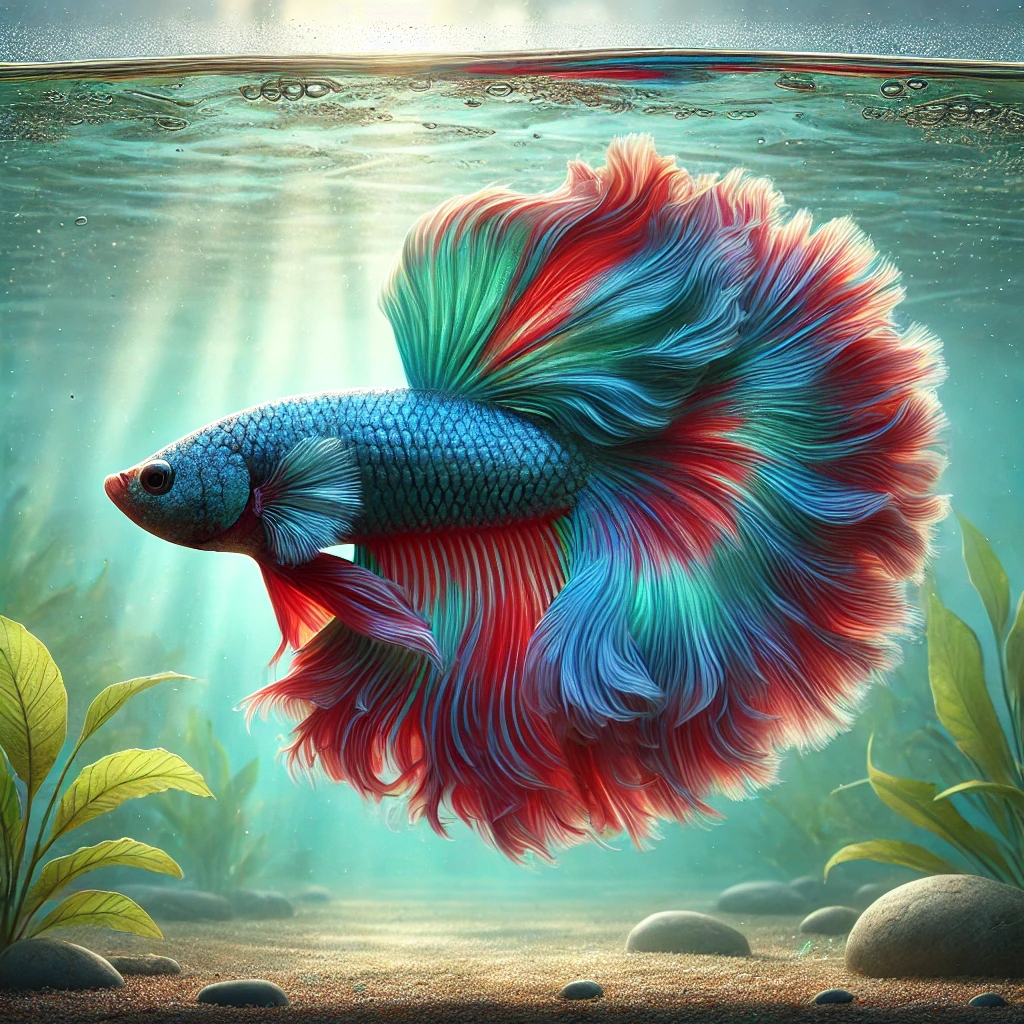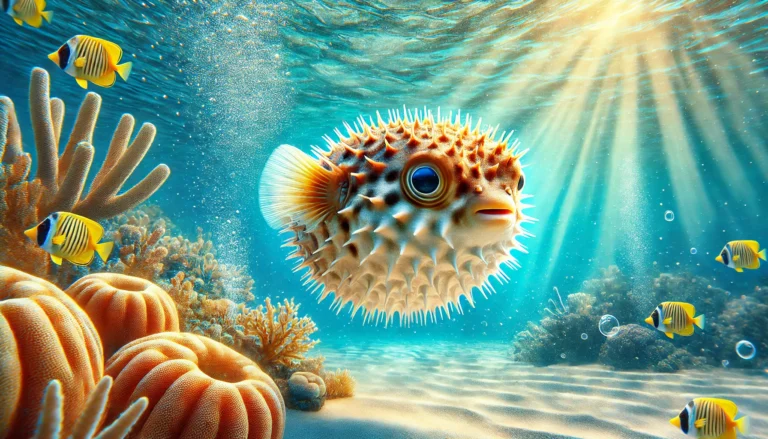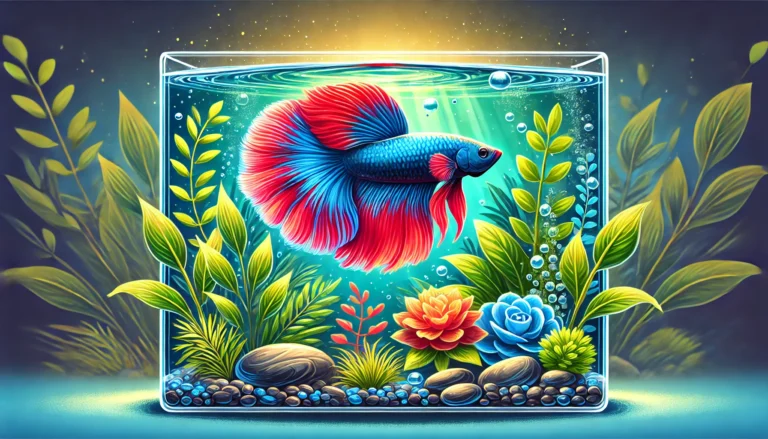5 facts about betta fish

Betta fish, scientifically known as Betta splendens, are one of the most popular and widely kept freshwater aquarium species in the world. Known for their vibrant colors and unique fin structures, these fighting fish are an ideal choice for both beginners and seasoned aquarium hobbyists. In this article, we will explore five key facts, covering everything from their natural habitat to their care requirements, lifespan, and more.

1. Betta Fish Origins and Natural Habitat
Betta fish are native to Southeast Asia, primarily found in countries like Thailand, Cambodia, Vietnam, and Laos. These small fish are commonly found in rice paddies, slow-moving streams, and shallow ponds. It thrive in warm, low-oxygen environments, where they have developed the unique ability to breathe air from the surface through their labyrinth organ.
Wild Betta Fish vs. Aquarium Betta Fish
Wild betta, also known as Siamese fighting fish, have a much more muted color palette compared to the vibrant aquarium varieties. In their natural habitat, betta are aggressive, territorial, and solitary creatures. They fight fiercely with other males to protect their space, which is why it’s crucial to understand how to care for betta in captivity, especially when considering their behavior in a fish tank.
2. Betta Fish Behavior and Temperament
They are often known for their aggressive tendencies, especially towards other males. Their territorial nature can be quite pronounced, which is why many betta owners prefer to keep them alone. Betta fighting can occur at any time, even if there is a smaller space or other bettas are in sight.
Do Betta Fish Fight?
Yes, male betta often engage in fights. These fights are usually territorial and can end in injury or death. It is essential to note that while male betta can live peacefully alone, female betta tend to be less aggressive but can also display territorial behaviors, especially in small spaces.
Can Betta Fish Live Together?
Generally, it is not recommended to house two male betta together, as they will fight. However, females can sometimes coexist if the tank is large enough and the environment is structured to minimize aggression. When you are considering tank mates for betta, choose fish that are peaceful and won’t provoke the betta into fighting.
| Fish Species | Compatibility with Betta Fish |
|---|---|
| Guppies | Low |
| Neon Tetras | High |
| Corydoras Catfish | High |
| Goldfish | Low |
| Other Betta Fish | Low |
3. Betta Fish Care and Maintenance
Caring for betta involves several key factors such as water temperature, tank size, and diet. Betta require specific care to thrive in a home aquarium. Here’s a guide on how to provide the best environment for your betta.
Tips
According to a research conducted in University of veterinary, Pakistan, betta fish owners also like to have another pet- mostly dogs. Therefore, it is better to know new puppy checklist for new owners.
Betta Fish Tank Size Requirements
A common misconception is that betta can live in tiny bowls. While they can survive in a small space for a short time, a 5-gallon tank is the minimum size recommended for a betta. A tank this size allows them to swim freely, and it also provides enough room to accommodate the required filtration and heating system.
Water Conditions for Betta Fish
Betta fish are tropical fish that require warm water to stay healthy. The optimal water temperature for betta ranges from 76°F to 82°F (24°C to 28°C). It’s crucial to use a tank heater to maintain a stable temperature. Betta fish also require clean water, so regular water changes (at least 25% every week) and a good filtration system are essential for their health.
| Water Quality | Ideal Conditions |
|---|---|
| Temperature | 76°F to 82°F (24°C to 28°C) |
| pH | 6.5 to 7.5 |
| Ammonia/Nitrite | 0 ppm |
| Nitrate | <20 ppm |
Betta Fish Feeding
They are carnivores and require a high-protein diet. Betta food typically consists of pellets, flakes, and frozen or live foods like bloodworms, brine shrimp, and daphnia. Feeding betta 2-3 times per day in small amounts ensures they receive the necessary nutrients without overfeeding.
4. Betta Fish Breeding and Reproduction
Betta reproduction is a fascinating process. Male bettas are known for their elaborate courtship rituals, where they build bubble nests to attract females. The breeding process can be successful if the tank conditions are just right, and the fish are healthy.
How Long Do Betta Fish Live After Breeding?
Betta typically live between 2 to 4 years, but this lifespan can vary depending on factors like tank conditions, diet, and overall care. Betta lifespan can be affected by stress, poor water quality, and lack of proper care. To increase the lifespan of betta, it’s essential to monitor their tank conditions and avoid overcrowding.
What to Know About Betta Fish Reproduction
Breeding bettas is a delicate process. The male builds a bubble nest at the surface of the water and shows it to the female. After mating, the female releases eggs, which the male collects in his mouth and places in the bubble nest. The male then guards the eggs until they hatch, and the fry are free-swimming.
5. Betta Fish Varieties and Color Morphs
Betta come in a wide range of colors and fin types due to selective breeding. Some bettas have spectacular tail shapes, while others boast beautiful color combinations. Understanding the types of betta and their unique characteristics can help you choose the right one for your aquarium.
Betta Fish Lifespan and Health
The lifespan of male betta fish can range from 2 to 5 years when cared for properly. Female bettas generally live slightly longer than males. Their lifespan is also influenced by genetics, diet, and water conditions.
What are the Different Types of Betta Fish?
There are several betta species, each with unique characteristics. Betta splendens, the Siamese fighting fish, is the most common type kept in aquariums. There are also other varieties like Betta imbellis and Betta smaragdina.
| Betta Variety | Tail Type | Color Range |
|---|---|---|
| Betta Splendens | Veil Tail, Crowntail, Halfmoon | Blue, Red, Yellow, Purple |
| Betta Imbellis | Short fins, smaller size | Green, Blue, Violet |
| Betta Smaragdina | Long fins, smaller body | Green, Teal, Blue |
Conclusion
Betta fish are incredibly fascinating creatures that bring color and life to any aquarium. Whether you are a beginner or an experienced fishkeeper, understanding the behavior, care needs, and lifespan of betta fish is crucial to creating a happy and healthy environment for them. Remember that betta fish require specific water conditions, careful feeding, and an appropriate tank size to thrive. By following the guidelines provided in this article, you can ensure that your betta fish live a long, healthy life and add beauty to your home.
Why is Betta Called Fighting Fish?
Betta fish are called “fighting fish” because of their aggressive nature, particularly the males. In their natural habitat, male bettas are highly territorial and will fight other males to protect their space. These fights can be intense, with the bettas flaring their gills and displaying their large fins to intimidate their opponents. This behavior has been bred into domesticated bettas, which still retain a strong fighting instinct.
What is So Special About Betta Fish?
Betta fish are unique due to their vibrant colors, flowing fins, and distinct personalities. They are one of the few species of fish that can live in low-oxygen environments thanks to their labyrinth organ, which allows them to breathe air from the surface. Betta fish also have a wide range of tail and fin types, including crown tails, half-moons, and veil tails, making them an aesthetic choice for aquarium enthusiasts. Their easy care requirements, combined with their striking appearance, make them a popular choice for both beginner and experienced fishkeepers.
Is Betta Fish Good for Home?
Yes, betta fish are great for homes, especially for individuals looking for a low-maintenance pet. They don’t require a large tank (a minimum of 5 gallons is recommended) and can thrive in smaller spaces. Their vibrant colors add a beautiful touch to any room, and their relatively easy care needs make them perfect for people with busy schedules. However, bettas should be kept in a properly heated tank and not in small bowls, as they require stable water conditions to stay healthy.
Can Betta Fish Live in Cold Water?
Betta fish cannot live in cold water. They are tropical fish that require a consistent water temperature between 76°F and 82°F (24°C to 28°C). Cold water can cause stress, weaken their immune system, and lead to health issues. It is essential to use a heater in the aquarium to maintain the appropriate temperature for bettas to thrive.
Do Betta Fish Need Heated Water?
Yes, betta fish need heated water. Since they are tropical fish, they require warm water to stay healthy and active. The water temperature should be maintained between 76°F and 82°F (24°C to 28°C). A reliable aquarium heater is necessary to keep the water at the correct temperature, especially in cooler climates or rooms where the temperature fluctuates.
How to Tell if Betta is Happy?
A happy betta fish will exhibit the following signs:
Active swimming: A healthy betta will swim around its tank, exploring and moving with purpose.
Vibrant colors: Betta fish show their most vivid colors when they are healthy and content.
Flared fins: While bettas flare their fins when threatened, they will also display them in a relaxed and open manner when they are comfortable and calm.
Eating regularly: A happy betta will eagerly accept food and have a good appetite.
Bubble nest building: Male bettas will create bubble nests at the water’s surface if they are healthy and content, often in the presence of a mate.
If a betta becomes lethargic, stops eating, or displays faded colors, it may be a sign that something is wrong, such as poor water conditions or illness.





